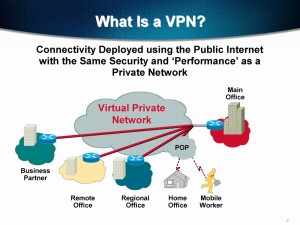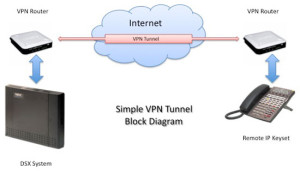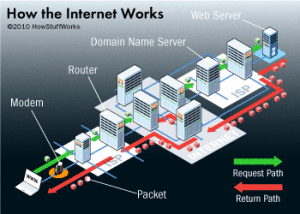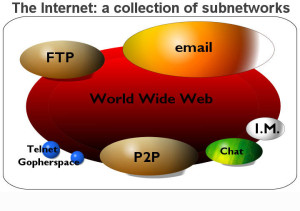Computer Physicians, LLC Colorado customers frequently ask many questions about their computers. Therefore we have created a blog to help customers understand some topics in the computer and internet world.
What is Malware?
Malware is short for “malicious software.” Malware is any kind of unwanted software that is installed without your adequate consent. Viruses, worms, and Trojan horses are examples of malicious software that are often grouped together and referred to as malware.
These Are A Few Of The Signs That Malware Has Entered Your PC:
- You start seeing an excessive amount of pop-up ads.
- Your PC’s operating system slows down significantly.
- The amount of spam you receive in your email increases.
- Your email account may send out messages to your contact list that you did not send. Sometimes it contains pornographic material or even a trojan or worm.
- The home page you have set in your browser is altered.
- When you try to access a web page in your favorites list, another web page appears that contains advertising or content that encourages you to enter your personal information.
- Your computer completely crashes.
- You are unable to access your antivirus program to remove the malware.
If your computer has become unstable, that’s a sign that something’s wrong. Some malware messes with important files that keep your computer running properly. That could cause your computer to crash. If your computer crashes when you try to run a specific application or open a particular file that tells you that something has corrupted the data. It could be malware.
Does your computer seem to run much more slowly than it used to? This could be the result of malware as the malicious code begins to drain your computer’s processing resources. If you aren’t running a resource-heavy application but your computer is very slow, you might have a computer virus.
Strange messages indicating that you can’t access certain drives on your computer are another sign that something is wrong. In a similar vein, applications that won’t run or files that won’t open may also be the result of infection. Other indicators include hardware (like printers) that no longer responds to commands. While none of these guarantee the presence of a virus, they do suggest that something is wrong with your machine.
If you notice that file sizes are fluctuating even if you aren’t accessing those files, that’s another sign of a computer virus. And finally, if you access menus and their appearance is odd or distorted, you could be the victim of a malware attack.
It’s important to remember that computer viruses are one potential cause of problems like the ones we’ve listed here, but that they aren’t the only cause.
Types of Malware
The more you educate yourself on malicious software, the better off you’ll be. Malware is not a virus. In fact, it consists of viruses, worms, Trojan horses, adware, rootkits and many other nasty infections. Some of these programs are more of an annoyance than anything, while others pose a serious threat to your computer. Regardless of the type, each of them offer their own unique security threat, and they should be avoided at all costs.
Viruses
The computer virus is the most infamous form of malware. It is a self replicating program that infects a system without authorization. A virus is often transmitted via email but can also be distributed through various storage mediums such as a flash drive. Once installed, it will execute itself, infect system files, and attempt to propagate to other systems. The impact of a virus ranges widely from slow system performance to wiping out every file on your computer.
Worms
Though closely related, worms and viruses are two completely different types of malware. Both have the ability to self-replicate and propagate by attaching themselves to files. While a virus moves from machine to machine with the help of a human, a worm tends to leach onto network traffic and can be a corporation’s worst nightmare. In no time, it can travel through the internet and inflict great damage from deleting files to creating backdoors that give its creator control of a system.
Trojan Horses
Similar to the mythical wooden horse used by the Greeks to invade Troy, the Trojan horse is a very deceptive program that appears harmless but is actually one of the most dangerous types of malware. It may arrive as a friendly email attachment or present itself as a useful application on a website. Because it does not have the ability to self replicate, a Trojan cannot be classified as a virus. However, it does have the ability to deliver destructive payloads and unload viruses, worms or spyware.
Spyware
Spyware is a sneaky program that tracks and reports your computing activity without consent. While it isn’t designed to inflict damage, spyware can terribly affect the performance of your computer over time. Spyware usually comes bundled with free software and automatically installs itself with the program you intended to use. Signs of spyware include sudden modifications to your web browser, redirects of your search attempts and the frequent displaying of pop-ups. In this instance, spyware can also be termed as adware which is essentially add-supported software that has the ability to track your activity.
Rootkits
A rookit could be a single program or collection of programs designed to take complete control of a system. This type of malware is employed by hackers and gives them all the abilities of a system administrator from a remote location.
Rootkits are very sophisticated as they make hackers very difficult to find. They are often used to infect other computers and enslave them as zombies, forcing them to attack other machines, distribute spam or steal passwords. When attempting to track a rootkit’s creator, the search usually ends with the first zombie while the hacker goes undetected.
Staying Safe
As you can see, malware is abundant and will attempt to attack your from every direction. However, there are several security solutions and system updates that will help to keep you protected. Combine these tools with safe computing and you have a much better chance of keeping the malicious software away.
_______________________________________________________________
Computer Physicians, LLC Colorado provides:
- System Crash Recovery
- Data Recovery
- Internet setup
- Computer, internet, and network Troubleshooting
- Virus, spyware, malware, and adware removal
- Hardware and software computer repair
- Computer Sales, systems, parts
- Upgrades and Installations
- Building PC computer systems
- tutoring & training
- Computer and network security
- Computer PC repair
Located in Erie, CO we service the Colorado front range, including:
Erie, Boulder, Longmont, Denver, Brighton, Louisville, Lafayette, Fredrick, Firestone, Fort Lupton, Thornton, Northglenn, Arvada, Superior, Broomfield, Gunbarrel, Henderson, Englewood, Aurora, Lakewood, Berthoud, Lyons, Niwot, Dacono, University of Colorado at Boulder, Weld and Boulder counties, and surrounding areas of Colorado.
Like this:
Like Loading...



